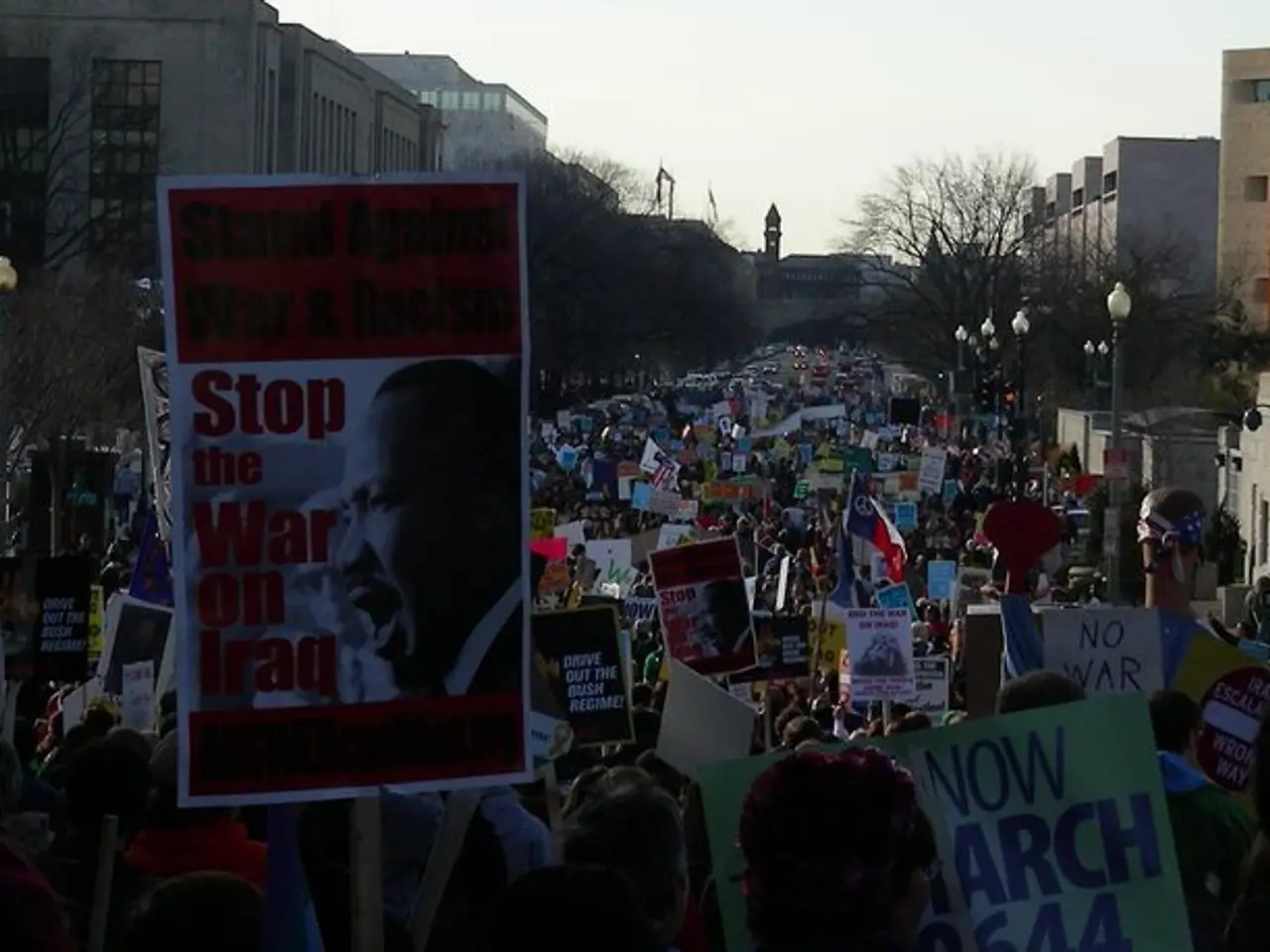Political residences in Nepal go up in flames, with the country's head of government departing the scene.
In the heart of Nepal, the capital city of Kathmandu, has been engulfed in unrest over the past few days. The resignation of Prime Minister Khadga Prasad Sharma Oli, who has been in office since last year, has been the centre of attention amidst protests and political turmoil.
The protests, which began on Monday, have been led by young people calling for Oli's resignation. Unverified videos show flames rising from the house and office of President Ram Chandra Paudel, thick smoke clouds forming over the parliamentary building, and demonstrators celebrating in the streets.
The escalation of the protests can be traced back to last week, when the government banned 26 online networks with the aim of forcing them to register and come under state supervision. However, the protests are not solely about the ban on online networks. They denounce widespread corruption and nepotism in the state as well.
The clashes between protesters and police have resulted in at least 19 deaths and numerous injuries. Reports suggest that the wife of former Prime Minister Jhalanath Khanal was seriously injured in the attacks and is in critical condition. The government has lifted the ban on online networks in an attempt to quell the unrest.
The homes and offices of several ministers and politicians, including former Prime Minister Jhalanath Khanal and current Prime Minister Khadga Prasad Sharma Oli, have been targeted and damaged during the protests. The army, government representatives, and police have urged citizens to remain calm during the unrest.
The events in Nepal have been described as a "loud and tragic wake-up call" by Michael Kugelman, a South Asia expert. Nepal, with a population of around 30 million, has a parliamentary democracy that is relatively young, having emerged from a civil war that lasted from 1996 to 2006 and the abolition of the centuries-old monarchy in 2008.
In a statement, Oli's office stated that he is stepping down to facilitate a political solution to the current situation in the country. The formation of a new government has not been clearly specified in the available search results. Several ministers, including the interior minister, have already resigned.
Despite a curfew in several areas of Kathmandu, the attacks continued to occur. Police used water cannons, tear gas, and live ammunition during the clashes. Police stations were also set ablaze during the protests.
The German Press Agency reported the injury of the wife of former Prime Minister Jhalanath Khanal, contradicting reports from the Nepali news platform "Kharbub" that she had died from her injuries. It is a time of uncertainty in Nepal, with demonstrations nationwide and a call for change echoing through the streets.
Read also:
- ICE directed to enhance detention conditions following NYC immigrants' allegations of maltreatment
- Israeli finance minister issues warnings about potential annexation of West Bank territories
- United States faces rebuttal from South Africa over allegedly deceitful human rights report and assertions of land expropriation
- Accident at Rodalben Results in Injuries; Geoskop Area near Kusel Affected After Stormy Weather








